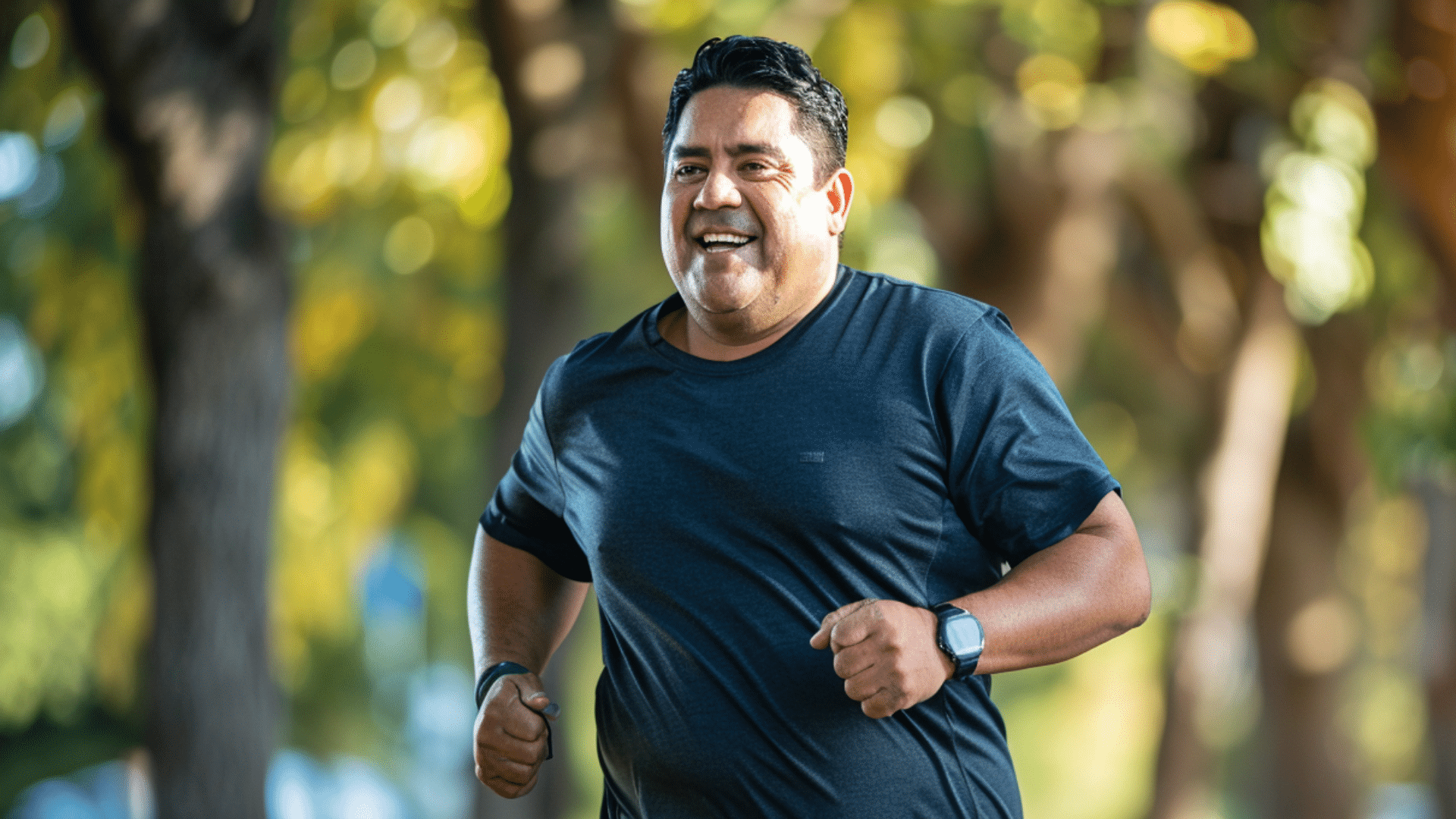
Weight Loss Tips
Adopt Healthy Habits and Enjoy a Happier, Healthier Life
Weight loss tips are valuable strategies to help individuals achieve sustainable weight loss and improve their overall health. Here are some essential tips to consider:
• Incorporate regular physical activity into your routine: Regular exercise burns calories, builds muscle, boosts metabolism, and enhances overall fitness. Cardiovascular exercises, strength training, and flexibility exercises should be included.
• Follow a balanced and nutritious diet: Opt for whole, unprocessed foods such as fruits, vegetables, lean proteins, and whole grains. These provide essential nutrients, keep you fuller for longer, and promote weight loss. Avoid or limit foods high in saturated fats, added sugars, and refined carbohydrates.
• Practice portion control: Being mindful of portion sizes can prevent overeating. Use smaller plates and bowls, and listen to your body’s hunger and fullness cues to avoid excess calorie intake.
• Stay hydrated: Drink plenty of water throughout the day. Water helps curb appetite, boosts metabolism, and supports overall bodily functions.
• Get enough sleep: Poor sleep is linked to weight gain and increased risk of obesity. Aim for seven to eight hours of quality sleep each night to support weight loss efforts.
These tips promote sustainable weight loss by focusing on lifestyle changes rather than quick fixes. Incorporating regular exercise, adopting a balanced diet, practicing portion control, staying hydrated, and prioritizing sleep are vital strategies that aid weight loss and improve overall health. Individuals can create lifelong habits that lead to successful and sustainable weight management by making changes.
Portion Control
Portion control is a crucial component of successful weight loss. It refers to consuming proper food rather than indulging in oversized portions. By understanding and implementing portion control, individuals can manage their calorie intake and avoid overeating, which can lead to weight gain.
Estimating portion sizes is a common mistake that often results in consuming more calories than intended. Without proper knowledge and awareness, it is easy to underestimate the size of a serving or to confuse portion sizes. It can lead to mindless eating and a consistent habit of overeating. To combat this, measuring cups and serving size guides are recommended for accurate portion control. These aids ensure that individuals consume the appropriate amount of food.
It can be helpful to compare serving sizes to everyday objects. For example, a quarter cup of food is approximately the size of a golf ball. Similarly, a half cup of food can be compared to the size of a tennis ball. These visual references can serve as helpful reminders when managing portion sizes.

Mindful Eating
Mindful eating is a concept that promotes the practice of being fully aware of why, how, when, where, and what one eats. It encourages individuals to pay close attention to their eating habits and better understand their relationship with food.
The benefits of mindful eating are numerous. Firstly, it allows individuals to become more aware of their hunger and fullness cues, helping them better regulate their food intake. By tuning in to these internal sensations, people can make more considered food choices and avoid overeating or emotional eating.
Techniques for mindful eating include sitting down to eat and avoiding distractions. It means refraining from feasting on the go or while working and instead giving full attention to eating. By doing so, individuals are more likely to experience and truly enjoy their food.
Eating slowly is another important aspect of mindful eating. One can fully taste and appreciate the food’s flavors, textures, and aromas by savoring each bite and chewing slowly. This also allows the brain enough time to register feelings of fullness, preventing overeating. Moreover, mindful eating encourages individuals to make considered food choices. It promotes a non-judgmental attitude towards food and encourages people to choose nourishing, balanced meals that meet their physical and emotional needs.

Hydration
Hydration plays a crucial role in overall health and weight loss. Drinking adequate water has numerous benefits that can promote weight loss.
First and foremost, water is essential for maintaining proper bodily functions. When our bodies are dehydrated, it can lead to various adverse effects, such as fatigue, dizziness, and headaches. These effects can hinder our ability to exercise effectively and may discourage individuals from engaging in physical activity, which is crucial for weight loss.
Proper hydration also improves exercise performance. Water helps regulate our body temperature, lubricates our joints, and transports nutrients to our muscles, which is vital for optimal exercise performance. When adequately hydrated, we can push ourselves harder during workouts and burn more calories, ultimately aiding in weight loss.
Furthermore, water plays a significant role in removing waste from the body. It helps flush out toxins, supports digestion, and prevents constipation. When dehydrated, our bodies may struggle to eliminate waste, leading to bloating and water retention, which gives the illusion of weight gain.
Research has shown that drinking water before meals can also promote weight loss. A study found that consuming water before each meal significantly reduced calorie intake. Water fills the stomach, creating a sense of fullness and potentially reducing overeating.

Regular Physical Activity
Regular physical activity is a vital component of a successful weight loss journey. It helps in shedding those extra pounds and provides numerous health benefits. Consistent physical activity is essential for maintaining a healthy weight, reducing the risk of chronic diseases, boosting mood and energy levels, and improving overall well-being.
Incorporating various activities into your daily routine can be a great way to stay active. Brisk walking, jogging, cycling, swimming, dancing, and aerobics are some examples of activities that can be easily incorporated into your day. Household chores like gardening, cleaning, or taking the stairs instead of the elevator can also contribute to your daily physical activity.
Gradually increasing exercise intensity and duration is crucial for long-term lifestyle changes. Starting with achievable goals and slowly progressing allows the body to adapt and avoid overwhelming strain or injuries. For example, if you are new to exercising, starting with a 10-minute walk and gradually increasing the time and intensity will lead to sustainable changes over time.
Regular physical activity not only aids in weight loss but also promotes a healthier lifestyle. Making physical activity a regular part of your routine becomes ingrained as a habit, making losing weight and overall well-being easier. So, start with simple activities, gradually increase your exercise intensity and duration, and make fun and rewarding regular physical activity a part of your daily life to reap its numerous benefits.
Expert Weight Loss Tips
Unlock the secrets to sustainable weight loss with our expert weight loss tips. From incorporating regular physical activity to practicing portion control and mindful eating, we provide actionable strategies for achieving your weight loss goals. Contact Medical Health Solutions at (303) 951-8617 to schedule a consultation and embark on your journey to a healthier you.
We provide weight loss services for these Lone Tree, Colorado areas:
Lone Tree, Acres Green, Belvedere, Bluffmont Estates, Carriage Club, Centennial Ridge, Club Terrace, Country Club Estates, Cypress Green, Douglas County, Fairways At Lone Tree, Heritage Estates, Heritage Hills, Lincoln Square Lofts, Masters Park, Montecito, Prominence Point, Ridgegate, Taos of Lone Tree, Terra Ridge, The Fairways, and Wildcat Ridge.
We also provide weight loss services for Edgewater, Colorado and these surrounding areas:
Edgewater, Wheat Ridge, Arvada, Westminster, Granite, Golden, Englewood, Littleton, Broomfield, Dupont, Commerce City, Morrison, and Henderson.
We also provide weight loss services for these Denver, Colorado areas:
Denver, Baker, Capitol Hill, Central Business District, Cheesman Park, Cherry Creek, City Park, City Park West, Civic Center, Congress Park, Country Club, Lincoln Park, North Capitol Hill, Speer, Union Station, Belcaro, Cory-Merrill, East Colfax, Hale, Hilltop, Indian Creek, Lowry, Montclair, Park Hill, Virginia Village, Washington Virginia Vale, Windsor, Clayton, Cole, Elyria-Swansea, Five Points, Globeville, North Park Hill, Skyland, South Park Hill, Whittier, Central Park, Gateway, Green Valley Ranch, Montbello, Northeast Park Hill, Auraria, Berkeley, Chaffee Park, Highland, Jefferson Park, Regis, Sloan Lake, Sunnyside, West Highland, College View, South Platte, Overland, Platt Park, Rosedale, University, University Hills, University Park, Washington Park, Washington Park West, Wellshire, Goldsmith, Hampden, Hampden South, Kennedy, Southmoor Park, Southwest, Bear Valley, Fort Logan, Harvey Park, Harvey Park South, Marston, West, Public housing in Sun Valley., Athmar Park, Barnum, Barnum West, Mar Lee, Ruby Hill, Sun Valley, Valverde, Villa Park, West Colfax, and Westwood.






